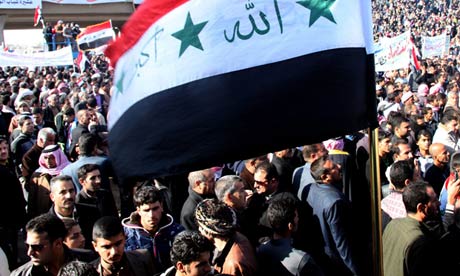By Madeline Schiesser
Impunity Watch Reporter, Europe
LONDON, United Kingdom – Legislation before Parliament would create a judicial method by which civil courts could hear evidence the government claims is a matter of national security behind closed doors in a “closed material proceedings,” concealed from the public, the media, and even claimants and their lawyers. Parts of the judgment, pertaining to the national security evidence, would also remain secret.

In a small victory for opponents of the legislation, the House of Lords defeated a measure last month that would have allowed ministers to determine what material would be considered a matter of national security. Instead, the legislation has been amended to grant that power, and thus the power to initiate a closed door proceeding, to judges.
Shadow Justice Secretary Sadiq Khan has strongly approved of this amendment, as the first draft of the bill “failed” to preserve the principle of “openness and transparency”. He further stated that: “Any deviation from this [principle] should only be considered in the most extreme of circumstances and must be accompanied by transparent checks and balances.”
The Justice and Security Bill would allow members of the security services to give evidence to civil courts in secret if a “closed material proceeding” is initiated. In deciding the appropriateness of such a proceeding, judges would be required to balance any harm from disclosing security information against the open administration of justice, amended language says. A further amendment also allows either party to request a closed material proceeding.
The bill moved to the House of Commons on December 18, where reading and debate on it began.
Civil liberty groups, however, say that the secret courts could allow government wrongs to go unquestioned. Furthermore, opponents say that the proposals of the bill would compromise the principle of open justice.
For example, Tory MP Andrew Tyrie wonders whether the bill would hinder extraordinary rendition investigations and “make it more difficult to find out the degree of Britain’s complicity”. Labour MP Joan Walley questioned whether the Ministry of Defense might use the bill as a shield against suits by “families of armed forces personnel who have been illegally killed or who may have been injured.”
Ken Clarke, minister without portfolio, who is charged with moving the legislation through Parliament, explained that the specific circumstances leading to a suit would determine whether a closed material proceeding would be appropriate.
Prime Minister David Cameron has further given assurances that the secret court hearings would only be needed “in a small number of cases”.
According to a government spokesman, there are currently about 20 civil damages cases where material “relating to national security” is central, and it would be in the interest of all parties for these cases to go to court. Unfortunately, in the past, some claims were not able to be “properly vindicated” and the case therefore had to settle because “material was necessarily excluded from the court.”
Former director of M15, Baroness Manningham-Buller, has praised the legislation, saying that it would enable British spies to defend themselves against “deeply distressing” allegations of torture. She said, “We have been judged by many to have been engaged in criminal activities but there have been no prosecutions . . . closed material procedures are a way that the judiciary can make a judgment on the validity of these claims and give a ruling and give judgment.
However, the in addition to appearing to run against the ideas of open justice, the legislation also appears to conflict with international law, including the International Covenant on Civil and Political Rights and the European Convention on Human Rights, which requires the U.K. to respect the right to a fair and public trial in all civil as well as criminal cases.
Benjamin Ward, Europe and Central Asia division deputy director at Human Rights Watch explained: “Justice when you don’t know the case against you is no justice at all.”
For further information, please see:
BBC News – Judges Should Decide Secret Courts, Government Accepts – 18 December 2012
HRW – UK: Scrap Secret Courts Plan – 18 December 2012
Independent – Government Plans U-turn on ‘Secret Courts’ to Avert Rebellion – 13 December 2012
BBC News – Cameron defends decision to block top civil service appointment – 11 December 2012
BBC News – Government Secret Courts Plans Defeated in Lords – 21 November 2012



